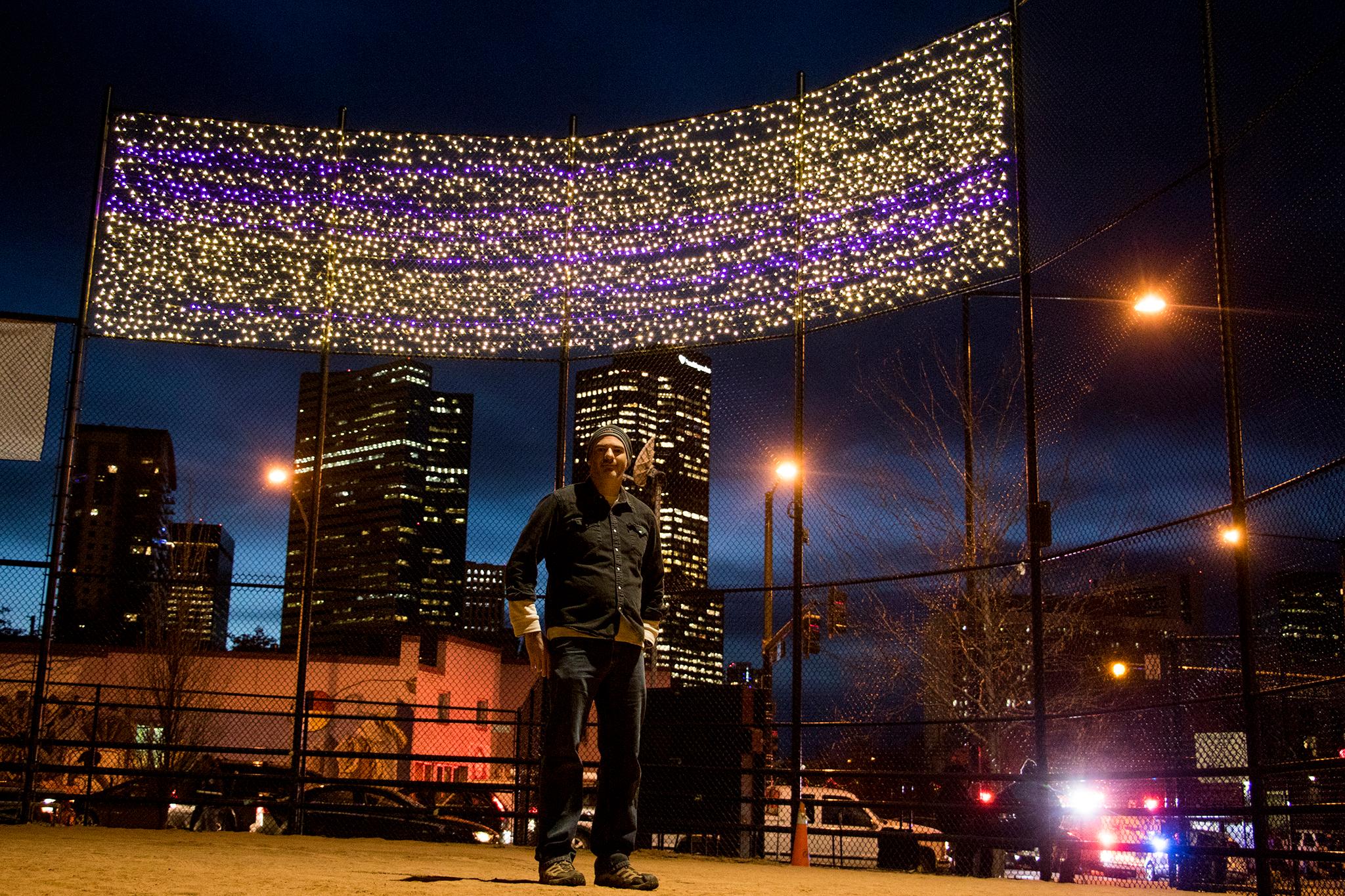Denver's shelter system, according to the director of the main city agency addressing homelessness, isn't perfect.
But it's "adequate to resolve crisis," Chris Conner, director of Denver's Road Home, said in an interview after giving testimony in defense of the city ban on urban camping.
Conner was called by the city as the last witness in four days of hearings held over two and a half weeks before Denver County Judge Johnny Barajas. Barajas is now likely to take a few weeks to decide on a challenge of the camping ban lodged by Jerry Burton, an advocate for people experiencing homelessness who himself has lived on and off the streets of Denver for decades. Burton was ticketed under the camping ban in April and has asked Barajas to dismiss the charge on the grounds, among other arguments, that it is unconstitutional to making pitching tents in the city a crime if shelters are inadequate.
The law, which City Council adopted in 2012 and Denver voters overwhelmingly refused to repeal earlier this year, outlaws eating, sleeping or storing belongings while using even a blanket to shelter in public. That, Burton's lawyer Andy McNulty said in his closing arguments Tuesday, means the "homeless and poor can be criminalized just for being homeless and poor."
Assistant City Attorney Eric Reece countered in his closing remarks that rather than being used to discriminate against people living in homelessness, the ban "is a tool that we use to help people at risk."
"It is not trampling on any rights of Mr. Burton," Reece said. "It is simply trying to help him."
On the witness stand Tuesday, Conner said emergency shelter beds or mats are usually available for single men like Burton. On the night of April 28-29 when Burton was ticketed, 275 spaces at men's shelters were available, Conner said. Even Monday night, as a winter storm sent temperatures plummeting, the Denver Rescue Mission shelter had 238 available spaces, Conners said. His Denver's Road Home helps fund shelters run by nonprofits such as the Denver Rescue Mission and coordinates a range of other support for people experiencing homelessness.
Conner acknowledged, though, that the situation can be different if you are not an adult man on his own. The city, for example, has one shelter, run by Urban Peak, with up to 50 beds designated for young people. According to the latest Point in Time, an annual homelessness survey, 196 unaccompanied people under 25 were experiencing homelessness one night in January. The Point in Time is widely seen as an underestimate, but a useful gauge of trends.
Adding shelter beds could have an impact, Conner said.
"It may open up opportunity to open, for instance, a shelter for couples," he testified.
But he also said the city could respond to a fluid situation. Adult shelters sometimes accepted younger people, he said. Mats can be spread out on recreation center floors if large numbers of people were to seek shelter on any given night. While the city has no shelters designated for families, a hotel run by Volunteers of America provided them a haven, as did commercial motels that accept vouchers that the city distributes in emergencies.
"We'll problem solve," Conner said.
It will be up to Barajas to decide whether that is adequate.
Judges in other cities have overturned bans similar to Denver's because their shelter systems were found wanting.
On the first day of the hearings, Barajas heard from several people experiencing homelessness who described Denver's shelters as chaotic, even frightening places.
The judge also heard of stress-induced by interactions with police under the camping ban, and that some people are asked to move along without ever being offered help. Police are under the law required to first try getting people to comply simply by asking, to offer help for those who need it, and to write a citation or make an arrest only as a last resort. In Burton's case, he insisted that police write him a ticket so that he could challenge the ban in court.
Conner testified Tuesday that the camping ban "gives first responders the opportunity to contact people who may be experiencing homelessness and bring them to services." During testimony a day earlier, a police officer described helping a man who had been living in a downtown Denver alley reconnect with his family.
In an interview in the courtroom following his testimony as he waited for attorneys to make closing arguments, Conner said the ban wasn't the tool he used. Denver's Road Home has outreach workers, as Conner once was, to talk to people on the streets about their needs and how they might be met.

On the witness stand and in the interview, Conner avoided expressing an opinion on the ban.
"To me, it's the law of the land right now," he told Denverite. "It's a factor. It's the law of the land. We need to think about how best to serve people in the context of the camping ordinance."
He did express regret for what he saw as the way the ban has hijacked the conversation.
"Clearly you have the frame of the conversation around homelessness is about the camping ban rather than, 'How do we get people off the streets,'" he said. "I think the conversation needs to change."
Burton's challenge of the camping ban brought to Judge Barajas's court a broad conversation about homelessness and housing insecurity.
Witnesses included Dwayne Peterson, a ballet instructor who testified that when he complained about the poor condition of his apartment, his landlady responded by selling to investors who would not renew his lease and told him they planned to raze the building to make way for more expensive housing. It was a textbook example of the pressures that result in low-income Denverites losing housing.
Peterson said it had been hard to keep working without a stable home during the four months since he lost his apartment. He did not feel comfortable going to a shelter, even as he endured encounters with police asking him to move along from doorway to doorway.
"First of all, one is homeless. There's anxiety around that. When you're told to move along and you're displaced and asked to move along again, when it's the police asking you to move along each time, there's anxiety and heightened awareness around that," he said. "Where will you go?"
Judge Barajas also heard during the hearings of the impact of urban camping, and the challenge of keeping the streets clean of litter and human and safely free of drug paraphernalia and fire hazards for both the housed and the unhoused. The judge was briefed on the city's broader efforts to ensure low- and moderate-income Denver residents have stable housing. Conner described trying to move quickly to identify people who might just need emergency help with the rent to avoid a long shelter stay that might spiral into chronic -- and hard to reverse -- homelessness. He said the shelter system was undergoing a rethinking.
"We're not interested in just sheltering people. We want them to be housed," Conner said on the witness stand. "I feel right now our shelter system responds to crisis."
Denver Homeless Out Loud, the advocacy group to which Burton belongs, says it will take time to reverse a housing crisis that was decades in the making and that it ties to under-spending on public housing as well as to the cost of living rising more quickly than many people's earnings. Until affordable housing is available for all, some will need and want to camp, Denver Homeless Out Loud says.













